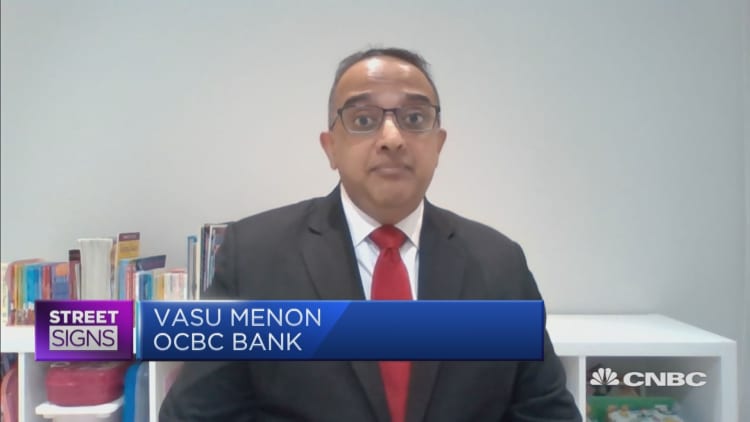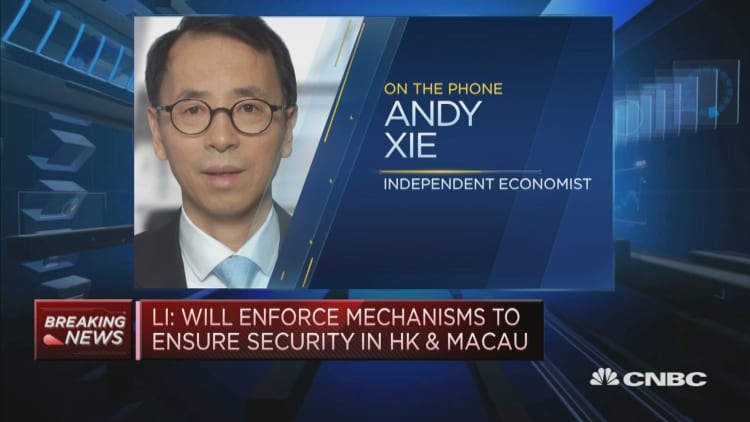China has promised to continue working toward the implementation of its "phase one" trade deal with the U.S., as tensions flare up between the two economic powerhouses.
In a report on the work of the government delivered to the National People's Congress (NPC) on Friday, Chinese Premier Li Keqiang vowed that Beijing will work toward the liberalization of global trade and investment.
"We will work with the United States to implement the phase one China-U.S. economic and trade agreement," Li said.
"China will continue to boost economic and trade cooperation with other countries to deliver mutual benefits."

Li also said China would "actively participate in reform of the WTO (World Trade Organization)" and work toward the signing of the Regional Comprehensive Economic Partnership, while advancing free trade negotiations with Japan and the Republic of Korea.
His comments come as relations between Washington and Beijing continue to sour over blame for the coronavirus pandemic, financial market access disputes and new national security laws for Hong Kong following pro-democracy protests, which have raised concerns about China's control of the city.
The long-awaited "phase one" deal was signed in January following protracted negotiations which held markets hostage for much of 2019, but U.S. President Donald Trump has suggested that it is no longer a priority for Washington and has floated punitive measures against China for its role in the initial coronavirus outbreak.

In a press conference Thursday, Zhang Yesui, spokesperson for the third session of the 13th National People's Congress, said that a "stable and growing relationship between China and the United States is in the best interest of the Chinese and American people."
Zhang stressed that the top priority for China is to "work together to fight Covid-19" and ensure global economic stability, but cautioned that if the U.S. maintains a cold war mentality, China will be forced to react.
—CNBC's Evelyn Cheng contributed to this report.

